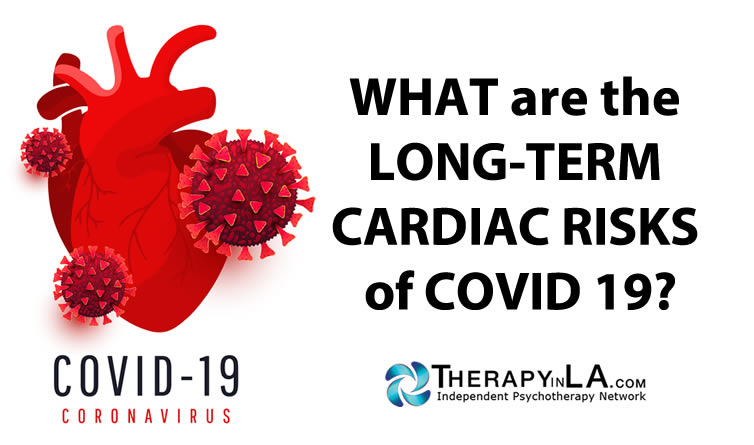WHAT are the LONG-TERM CARDIAC RISKS of COVID 19?
WHAT are the LONG-TERM CARDIAC RISKS of COVID 19?
By Alan M. Solomon, Ph.D.
During the first year of recovering from COVID 19, individuals had greater risks of various heart problems, including heart failure, heart attacks, strokes, blood clots, heart muscle inflammation, and abnormal heart rhythms. These risks were clear for people not hospitalized with acute forms of the corona virus, as well as for those who had more severe forms of the illness that required a hospital stay (https://www.nature.com/articles/d41586-022-00403-0) .
Early in the pandemic, a research team at a St. Louis hospital for the Veterans Administration began hearing about lingering cardiac issues for patients who identified themselves as “long haulers”. These patients had survived the first 30 days of the disease. They looked at 3 large groups of patients:
- 153,000 + patients who had used VA services and had a positive COVID 19 test result from March 1, 2020 to January 15, 2021.
- 5,637,000 + patients with no evidence of COVID 19 during 2019.
- 5,859,000 + patients pre-pandemic patients who were treated by the VA in 2017.
This study allows for two control groups, one during the pandemic and one before the pandemic, so that the conclusions are strengthened.
The basic finding is that COVID 19 patients have a greater risk of cardiovascular disorders: heart attack, stroke, mortality, dysrhythmias such as atrial fibrillation, heart failure, heart attacks, heart disease, inflammation of the heart, and blood clots.
Other risk factors were considered, including age, race, sex, obesity, smoking, high blood pressure, diabetes, kidney disease, high cholesterol, and pre-existing cardiovascular disease. None of these factors played a part. Since one vaccine (Pfizer) has a slight risk of myocarditis and pericarditis, this was also considered, and the greater risks of cardiovascular disease for COVID patients held true no matter what vaccine they may have received.
The senior author, Dr. Ziyad Al-Aly, concluded, “The risks were evident in young people and old people, in Black people and White people, in males and females, in people who smoke and do not smoke, in people who have diabetes and people without diabetes, etc. It really did not spare any subgroup.” It is possible that some people with cardiovascular risks had an increased risk of getting sick with COVID 19 to begin with, so that their cardiovascular outcomes would be worse.
The other qualifying factor in this study is that all patients were veterans of military service. This may lead to some greater risks due to the impact of their military service when compared to civilians, who have no military service.
Regardless, having had COVID 19, even without a need for hospital treatment, greatly increases the risks of cardiovascular disease, a “… condition that will affect people for a lifetime and may impact their quality of life and other health outcomes.” Quality psychotherapy and mental health care is an important part of treatment for such long-term conditions.
Alan M. Solomon, Ph.D. is a clinical psychologist in private practice in Torrance, CA. A member of the Independent Psychotherapy Network, he can be reached at 310 539-2772 or dralanms@gmail.com In-person and telehealth sessions are available.
Copyright 2022 by Alan M. Solomon, Ph.D.

